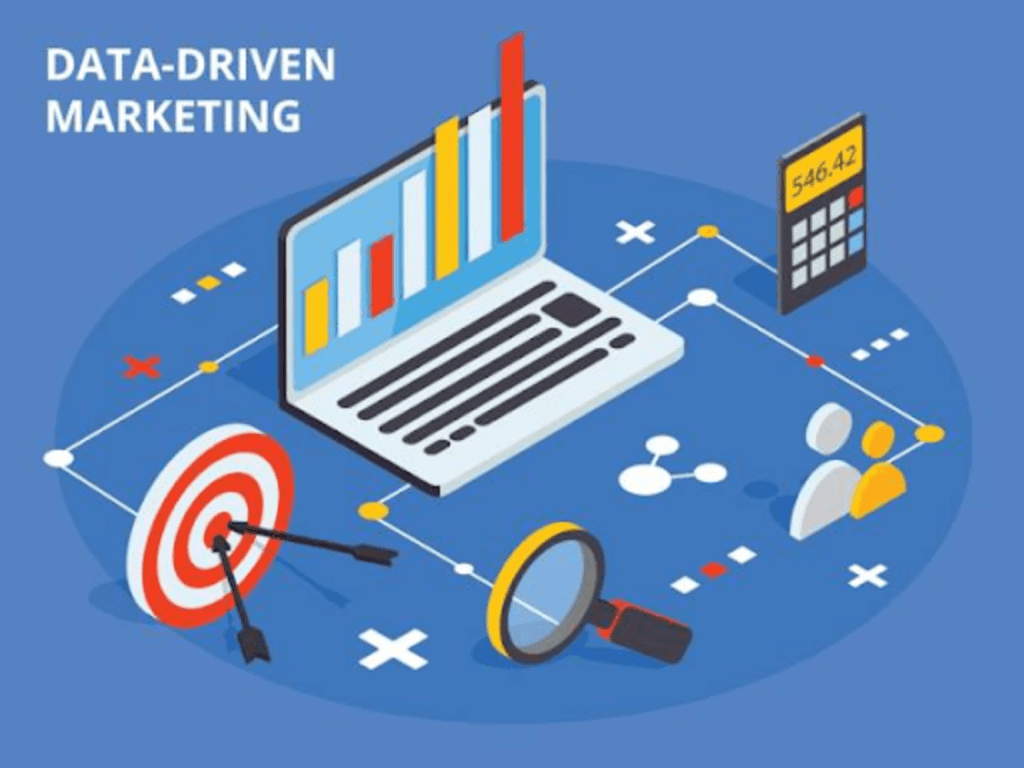
In the era of digital transformation, data has emerged as a cornerstone for informed decision-making and strategic marketing initiatives. Data-driven marketing transcends traditional methods, providing businesses with the tools to understand their audience, personalize experiences, and optimize campaigns for maximum impact. In this blog, we will explore the transformative potential of data-driven marketing and how businesses can unlock its power to drive growth and success.
The Evolution of Marketing: From Intuition to Data-Driven Precision
Traditional marketing relied heavily on intuition, demographic studies, and broad audience categorizations. While these methods had their merits, they lacked the precision and personalization that modern consumers expect. Data-driven marketing marks a paradigm shift, enabling businesses to move beyond assumptions and make decisions rooted in real-time, actionable insights.
By leveraging data, businesses gain a deeper understanding of customer behavior, preferences, and journey touchpoints. This evolution allows for the creation of highly targeted and personalized marketing strategies that resonate with individual consumers, fostering stronger connections and driving higher conversion rates.
Building a Foundation: Data Collection and Integration
The journey to data-driven marketing begins with robust data collection and integration. Businesses need to aggregate data from various sources, including website analytics, customer relationship management (CRM) systems, social media platforms, and transaction histories. Centralizing this information provides a holistic view of customer interactions and allows for comprehensive analysis.
Integration of disparate data sets is key to breaking down silos and creating a unified customer profile. This consolidated view enables marketers to develop a comprehensive understanding of customer behavior, preferences, and engagement across different channels.
Understanding Your Audience: The Power of Customer Segmentation
Once data is collected and integrated, the next step is segmentation—dividing the audience into meaningful groups based on shared characteristics. Customer segmentation is a fundamental strategy in data-driven marketing as it allows businesses to tailor their messaging and offers to specific segments, delivering more relevant content to each audience.
Segmentation can be based on various criteria, such as demographics, geographic location, purchase history, or behavioral patterns. The result is targeted campaigns that resonate with specific segments, increasing the likelihood of engagement and conversion.
Personalization: Crafting Tailored Experiences
Data-driven marketing enables a level of personalization that was once unimaginable. Armed with insights into individual preferences, behaviors, and purchase histories, businesses can craft highly personalized experiences for their audience.
Personalization goes beyond addressing customers by their first name in an email. It involves delivering content, recommendations, and offers that align with an individual’s unique interests and needs. Whether through personalized product recommendations, targeted promotions, or dynamically generated content, personalization enhances the customer experience and fosters brand loyalty.
Predictive Analytics: Anticipating Customer Needs
Predictive analytics leverages historical data, machine learning algorithms, and statistical models to forecast future outcomes. In the realm of data-driven marketing, predictive analytics empowers businesses to anticipate customer behavior, identify trends, and make proactive decisions.
For example, predictive analytics can help businesses predict which products a customer is likely to purchase, when they are most likely to make a purchase, or even identify potential churn indicators. By harnessing the power of prediction, businesses can optimize their marketing strategies, allocate resources more effectively, and stay ahead of market trends.
Automation: Streamlining Marketing Processes
Data-driven marketing is closely linked with marketing automation, a powerful tool that streamlines repetitive tasks, nurtures leads, and delivers personalized messages at scale. Automation is not just about saving time; it’s about delivering the right message to the right person at the right time.
Automated workflows can be triggered by specific customer actions, such as website visits, email opens, or form submissions. These workflows can guide customers through personalized journeys, from initial awareness to conversion and beyond. The result is a more efficient and effective marketing strategy that maximizes engagement and conversion opportunities.
Measuring Success: Key Performance Indicators (KPIs) and Analytics
Data-driven marketing is inherently tied to measurement and analysis. To unlock its full potential, businesses need to establish clear Key Performance Indicators (KPIs) aligned with their marketing objectives. Whether it’s tracking website visits, conversion rates, customer acquisition costs, or customer lifetime value, KPIs provide benchmarks for success.
Comprehensive analytics tools enable businesses to measure the performance of individual campaigns, channels, and customer segments. Regular analysis of these metrics not only gauges the success of current initiatives but also informs future strategies. Adjustments can be made in real-time based on performance data, ensuring that marketing efforts remain agile and responsive to evolving trends.
Data Security and Compliance: Safeguarding Customer Trust
As businesses harness the power of customer data, it is imperative to prioritize data security and compliance with regulations such as the General Data Protection Regulation (GDPR) and the California Consumer Privacy Act (CCPA). Building and maintaining trust with customers requires a commitment to protecting their sensitive information.
Implement robust data security measures, obtain explicit consent for data collection, and communicate transparently about how customer data is used. By prioritizing data privacy and compliance, businesses not only adhere to legal requirements but also foster a sense of trust and confidence among their customer base.

Case Studies: Success Stories in Data-Driven Marketing
- Amazon: Precision in Recommendations
Amazon, the e-commerce giant, is a pioneer in data-driven marketing. The platform leverages customer purchase history, browsing behavior, and demographic information to deliver highly accurate product recommendations. Amazon’s recommendation engine analyzes vast amounts of data in real-time, providing users with personalized suggestions that contribute significantly to the platform’s sales and customer loyalty.
- Netflix: Personalization for Viewer Satisfaction
Netflix, a leading streaming service, excels in data-driven marketing through personalized content recommendations. The platform analyzes user viewing habits, preferences, and ratings to curate a personalized content library for each subscriber. Netflix’s ability to anticipate viewer preferences and suggest relevant content contributes to high levels of user satisfaction and retention.
Challenges and Considerations in Data-Driven Marketing
Data Quality and Accuracy:
The success of data-driven marketing relies on the quality and accuracy of the data being collected. Inaccurate or outdated information can lead to misguided decisions and ineffective campaigns. Implement data validation processes, regularly clean and update databases, and ensure data integrity for reliable insights.
Integration Challenges:
Integrating data from disparate sources can be challenging, especially for businesses with legacy systems or decentralized data storage. Invest in integration solutions and technologies that facilitate seamless data flow across platforms, ensuring a unified and comprehensive view of customer interactions.
Talent and Skill Gaps:
Implementing a robust data-driven marketing strategy requires skilled professionals who can navigate analytics tools, interpret data, and derive actionable insights. Address talent gaps by investing in training programs, hiring skilled professionals, or collaborating with external experts to harness the full potential of data-driven marketing.
Balancing Personalization with Privacy:
While personalization is a powerful tool, it must be balanced with respect for customer privacy. Striking this balance requires businesses to implement robust privacy policies, obtain explicit consent for data usage, and provide customers with control over their data. Failure to prioritize privacy can erode trust and lead to regulatory challenges.
Data-driven marketing represents a seismic shift in the way businesses approach their marketing strategies. By harnessing the power of data, businesses can move beyond assumptions and intuition, making informed decisions that resonate with their target audience. From customer segmentation and personalization to predictive analytics and automation, the tools at the disposal of data-driven marketers are vast and transformative.
The success stories of Amazon and Netflix showcase the real-world impact of data-driven marketing on customer experience, satisfaction, and business growth. As businesses embark on their data-driven journey, it’s essential to navigate challenges such as data quality, integration, talent gaps, and privacy considerations.
In unlocking the power of data-driven marketing, businesses not only optimize their current marketing efforts but also position themselves for future success in a landscape that continues to evolve. The journey toward data-driven excellence is ongoing, requiring a commitment to continuous improvement, adaptation to emerging technologies, and a customer-centric approach that places the individual at the heart of every marketing decision.



